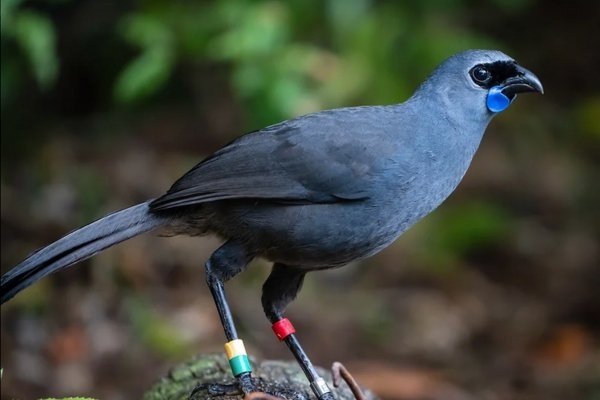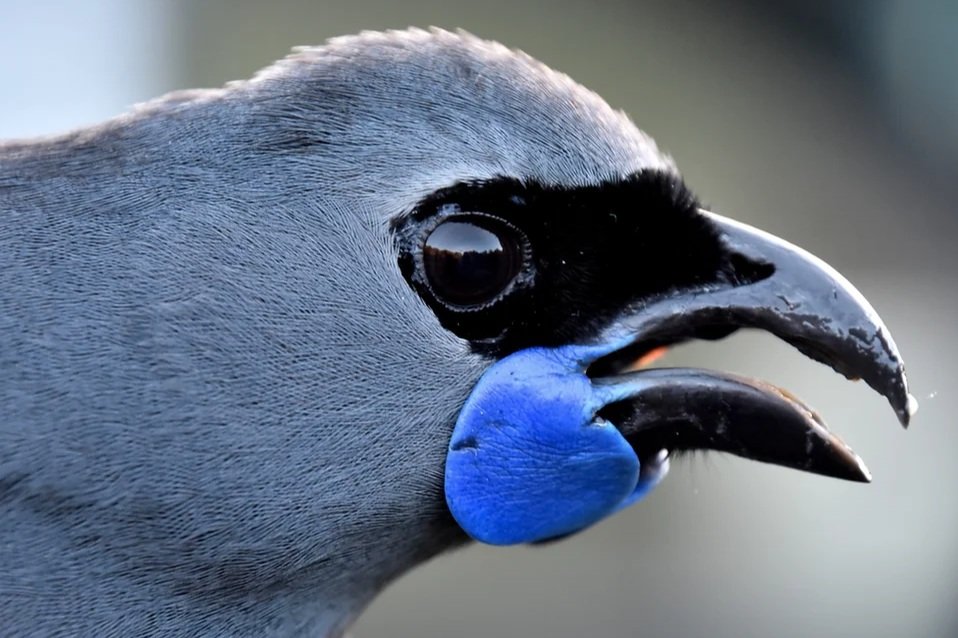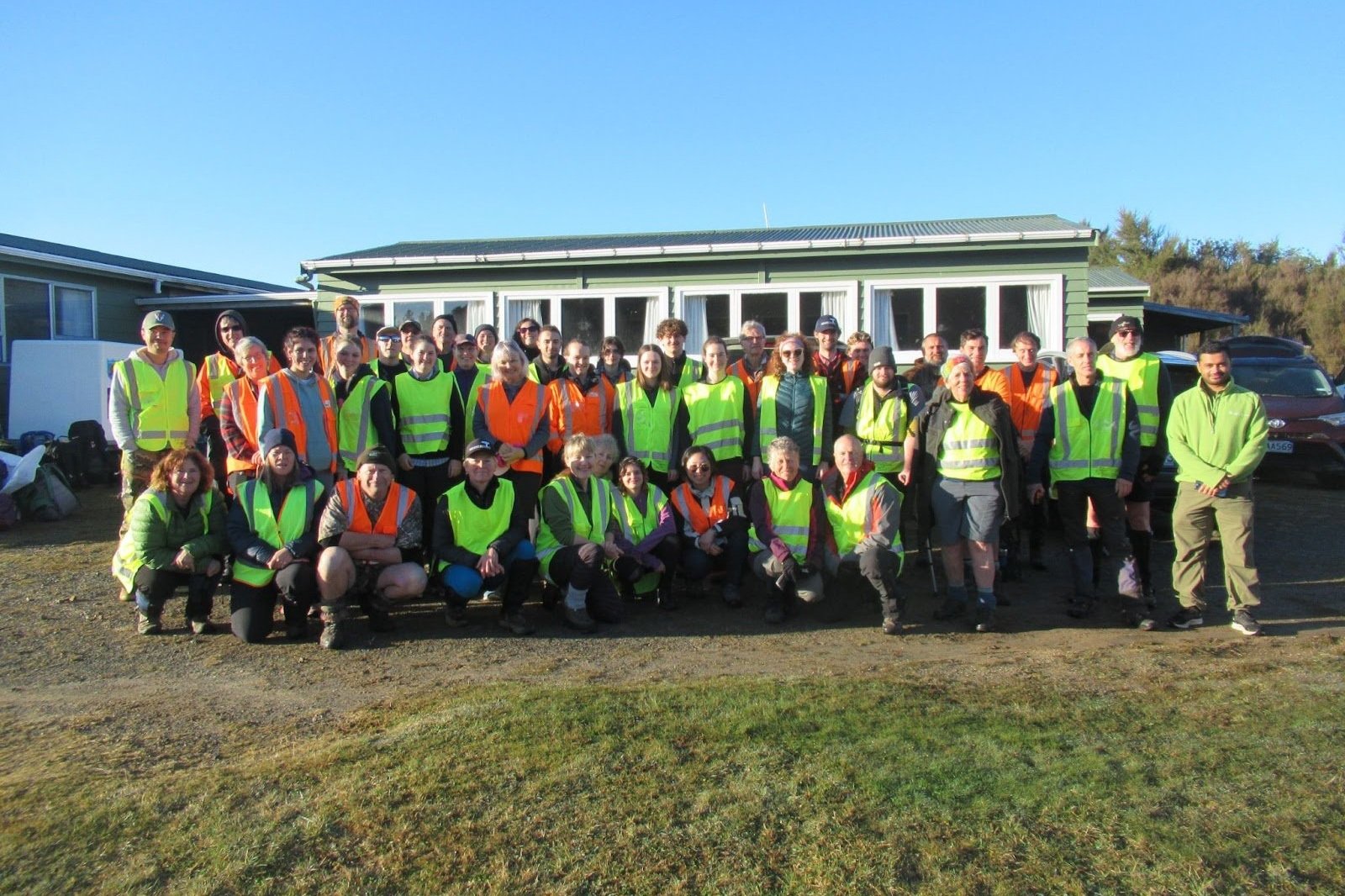Field Trip: Working Bee Pureora
After our field trip to Pirongia, we are now organising a working bee field trip to Pureora. During our visit to Pirongia, Diane and Selwyn from the Pirongia Te Aroaro o Kahu Restoration Society gave us a presentation, highlighting the incredible work they do with Kōkako. The upcoming trip is scheduled for 9th-11th February 2024 and will span from Friday evening to midday on Sunday. Our primary objective is to assist the Pirongia Restoration Society, which oversees this specific Northern Pureora forest block, in removing bait from bait stations. To streamline the process, we plan to pair up with another person for the bait removal task.
As you can imagine, we're really excited to hear the Kōkako and explore the Okahukura area. Pureora Forest is a great place for that, and it gives us a chance to help the Pirongia Restoration Society Volunteers protect them. So, our first Project Tongariro Field trip of the year will be all about this!
Sarah Tunnicliffe - Turangi Senior Biodiversity Ranger DOC (who used to work for DOC Pureora) has given us a synopsis of a weekend spent volunteering for the Pirongia Restoration Society at Okahukura (Pureora)
Pureora working bee
SArah tunnicliffe
I’m lucky to have had a long, if somewhat distant involvement with the Pirongia Restoration Society and their work protecting the Kōkako population at Okahukura in Pureora’s North Block.
In 2015 I was looking to get involved in some volunteer Conservation work and knew of the goals of the Restoration Society. Along with three other volunteers and staff from Pureora DOC we installed some of the tracking tunnel index (TTI) lines in the Okahukura block.
Fast forward a few years and I was a Trainee Ranger graduate with a 2 year contract at the Maniapoto/Te Kuiti DOC office. I started to help with the Pirongia Restoration Society’s baiting days at Okahukura. Driving volunteers via LUV to their bait lines and also doing a line or two myself. It was a great insight into the enthusiasm and commitment of many people to undertake valuable volunteer conservation work. I would come away from each weekend helping, feeling more positive about the great people out there. The weekends are expertly run by Dianne June and others from the Society and attended by all sorts of volunteers including a raft of Waikato University students. The venue where people stay is marvellous – think old 70s school camps and you’ll be on the right track. The OEC (Outdoor Education Centre) or Lions Lodge at Pureora is a perfectly adequate place to stay or camp for a couple of nights. There is bunk room accommodation or plenty of area for camping also, shared bathrooms and a commercial, fully equipped kitchen. Please note that Pureora is on a plateau and the temperature can be several degrees colder there than anywhere else in the Waikato.
The weekend starts on Friday night with people gathering and the safety briefing by Dianne and her team. Saturday morning starts bright and early with people getting ready to carpool to the Okahukura site – several kms from the OEC along a metal road – high vehicle clearance and preferably 4WD, though 2WD will cope!
It’s a big day, but worth it as you often hear and sometimes see Kōkako. The bush is quite different, the tracks well marked and the support is excellent. There are different lines depending on fitness levels and people are paired up according to their abilities. Some people and their gear are transported via 4WD or LUV vehicles to the start of the lines and will be picked up later in the day. There is a steady stream of people being transported around the 14 km loop and the area that covers >100Ha’s of predator controlled area.
Return to the Okahukura base at the end of the day and you are met with home baking and a cold drink. You are then car-pooled back to the OEC. There is always an option to stay the second night and sometimes lines to be finished on the Sunday morning.
All in all a great experience and some awesome people – I’ll be helping out this year and I hope you do too!
About the trip
We hope to meet a member of the Pirongia Te Aroaro o Kahu Restoration Society to introduce us to the work the society is doing to bring the maunga and ngahere back to life and to re-introduce key native species like kokako, dactylanthus and mistletoe. Like Project Tongariro, volunteers are at the heart of the restoration society. You can read about the society here
Booking priority will be given to Project Tongariro members. If you are interested in becoming a Project Tongariro member, you can sign up here.
ACCOMmODATION
There is no cost for accommodation at the Pureora Forest Park Lodge, as the Pirongia Society has generously covered all expenses. You can check out the lodge’s facilities through this link. The lodge can accommodate 50-60 people indoors, and it also offers ample tent space and parking for campervans/caravans. Additionally, there are four unisex showers and a spacious, well-equipped kitchen.
Pureora Lodge
SCHEDULE
Friday: Arrive anytime after 4:30 pm and before 7:45 pm for a safety briefing. In the meantime, there's an opportunity to cook your evening meal and relax with a glass of wine. During the briefing, you'll be advised about the bait line(s) you are to empty, gather the necessary safety gear provided, and meet your teammate. All arrangements are sorted before the weekend. Typically, University Science students, who assist, go out around 9:30 pm to walk the Waipapa loop, returning at about 10:30 pm.
Saturday: Breakfast is self-catered. Be ready for a group photo at 7:25 am, and departure from the Lodge is at 7:30 am. We'll then form a convoy in larger vehicles for a further 40-45 minute drive along 16 km of dirt road to reach the base of our operation. For those heading further up the eastern side, they can continue in their vehicles. Others will start walking up a track through the middle of the valley to reach the lines on the western side. Those with the farthest walk (i.e., the very north of the block) will get a ride in an LUV to reach their destination faster – it's a 6 km stretch from top to bottom of the grid.
Everyone will be given a return time to the base by the end of the day, or to at least be on the roads heading back to the base. As soon as enough people return to fill a vehicle, it will head back to the Lodge. In the evening, we'll have a potluck dinner (so bring along something to share), possibly followed by a presentation from a Project Tongariro representative.
Sunday: Repeat the process of Saturday if not all the bait stations have been emptied (we need at least 60 people on a Saturday to achieve this). A small team will go back to the base and visit those lines still to do – usually nearby. Returning to the Lodge about 1pm. Meantime those who remained at the lodge are responsible for the lodge clean-up. Then we all pack up and depart.
If the whole grid has been covered on Saturday then volunteers can opt to leave on Saturday afternoon/evening or stay the night and leave on Sunday morning after the cleaning has been completed – allow 1 hour for cleaning.
There is every chance you will hear Kōkako. We know their territories are more or less evenly distributed across the valley. Three of them are frequently seen around the base about 4-6pm. And often heard at the Lodge before breakfast. Follow this link to read about Pirongia’s project looking after the Okahukura Valley.
Other walking opportunities: The Totara Loop walk in Pureora village starts at the Timber Trail carpark. It takes about 30 minutes; or visit the treetop tower a short drive east from here; and further up SH30 is the parking area to walk to Pouakani, the biggest Totara.
register your interest for this Project Tongariro Field Trip
Please click on the Register Now button below and fill out the registration form by no later than Monday 29th January 2024. Once we receive your registration we will come back to you for your volunteer information for the Pirongia Restoration Society, and will relay further information about the weekend such as a gear list and driving instructions to the Pureora Forest Park Lodge. It will be an advantage to have a good level of tramping fitness, be able to carry a day pack, some first aid experience and bush navigation skills. Please note, you need to be a Project Tongariro member to attend this trip.





